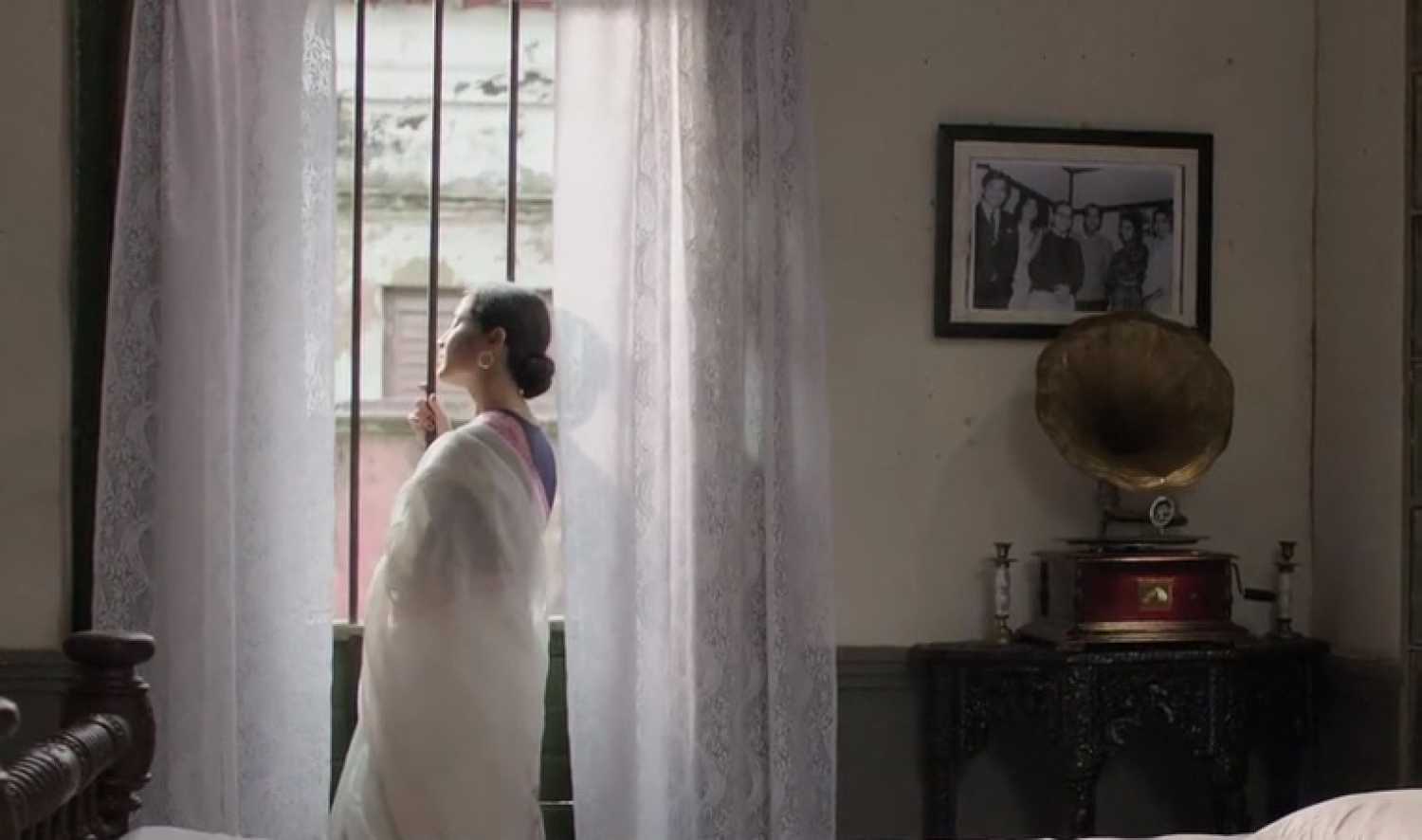Bobby Sarma Baruah's lush film explores the life of legendary folk singer Pratima Barua Pandey through her music.
Sonar Baran Pakhi preview: Musical journey through solitary life of a great artist
Mumbai - 06 Dec 2017 17:48 IST
Updated : 07 Dec 2017 0:06 IST


Shriram Iyengar
Director Bobby Sarma Baruah's film delves into the mysterious life of one of the Northeast's most legendary names. Pratima Barua Pandey (1935-2002) was known popularly as Hastir Kanya, or elephant's daughter. Drawn to the lowly songs of the commoners, she sacrificed her royal lineage to sing and raise the stature of the Goalpariya music culture. It was her contribution that served to bring Goalpariya music back into mainstream Assamese culture.
With original compositions by Barua Pandey providing the background, the film captures the journey of the great folk singer and her solitary struggle in trying to preserve this culture. She grows from an innocent young girl drawn to the music of her servants, farmers and mahouts to a young woman defying societal conventions to pursue this art form.
At each point, she faces several roadblocks. But she persists with the equanimity of an artist who knows her task. While her father encourages her, and names like Bhupen Hazarika and Ritwik Ghatak try to help, the journey remains a lonely one.
Yet, there is a sense of serenity in this pursuit, affirmed by the beautiful visuals of Baruah's film. The film underlines the struggle of a female folk singer, defying societal norms to pursue an art form, with beautiful visuals and a stunning collection of songs by the legend herself.
Goalpariya songs themselves are part of a very conflict-ridden part of Assam. Goalpariya music emerges from the Rajbangshi community that is dispersed across the region that includes Assam, Nepal, Bangladesh, Bengal and Bihar. The music belongs to the farmers, shepherds, fishermen, and, most importantly, mahouts wandering in the jungle. They are composed of a mixture of dialects of Assamese and Bengali, earning them step-sisterly treatment at cultural centres.
The film captures this discrimination, and Barua Pandey's consistent defiance of it, with a sensitive, non-judgmental air. The lyrics convey desire, love, and romance, even when invoking the gods, making it easy to understand why passionate singers like her and Hazarika were drawn to them.
Pratima Barua Pandey was awarded the Sangeet Natak Akademi award and the Padma Shri for her efforts to conserve this piece of Assamese culture. She was honoured with a statue in singing repose at Chandmari, Guwahati.
Baruah's film, like the statue, seeks to capture the journey of this legendary folk musician in solitude; defiant in her passion and at peace with her music.
Sonar Baran Pankhi will be screened at the Kazhcha Indie Film Festival in Thiruvananthapuram, Kerala, on 8 December 2017 at 2 pm at the Lenin Balwadi.
Related topics
Kazhcha Indie Film Festival

